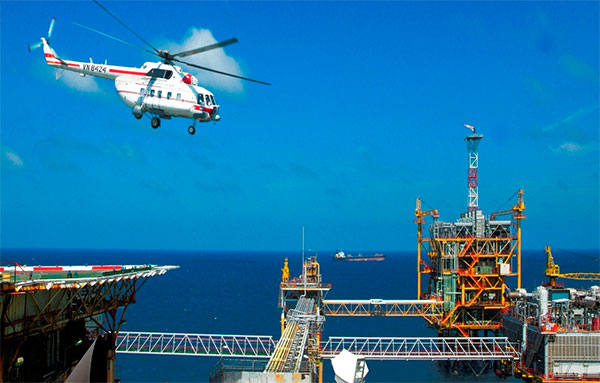Vietsovpetro may escape back tax threat

illustration photo
Recently the Ministry of Industry and Trade (MoIT) agreed with the Ministry of Finance’s (MoF) proposal to not require the oil company to pay back taxes on equipment imports for its petroleum extraction Block 09-1.
The MoIT defended the idea by saying that it facilitates and supports the operation of Block 09-1 as per the spirit of cooperation for petroleum exploitation in Vietnam’s southern continental shelf signed in 1991 and again in 2010 between the two governments.
Clause 8 in the 1991 agreement stipulates that Vietsovpetro is exempt from paying customs duties on bringing in and sending out materials, equipment and goods to serve the joint venture’s major operations.
Clause 7 in the subsequent 2010 agreement also spelled out the same content.
However, it also required that materials, equipment and goods already in the domestic market that change ownership would incur customs duties and relevant taxes as per Vietnamese law.
In reality, current regulations governing customs duties are not clear and imports into Vietnam are generally subject to three different taxes – import duties, value added tax (VAT), and special consumption tax.
Another issue is that the agreement was inked in 1992, while the law on VAT came into force in 1999 which can be confusing to customs authorities in calculating applicable taxes.
The potential back taxes are in the millions of US dollars.
Also important is Vietsovpetro claiming difficulty in interpreting and following this year’s amended tax law.
The joint venture said the annual financial plan agreed to by both sides had Vietsovpetro retaining 35 per cent of exploited crude oil to cover their operating costs.
The company signed a package contract with PetroVietnam Oil Corporation (PVOil) under which the latter would act on behalf of Vietsovpetro in negotiating and signing agreements with purchases and resolving payment issues, including tax. For its services PVOil receives $0.90 for every tonne of oil the joint venture exports and the local enterprise does not currently have the available capital to immediately pay export duties and taxes for crude oil export as required by the amended tax law.
An MoF circular guiding taxes on oil and gas exploration and production by Vietsovpetro at Block 09-1 under the 2010 agreement said the deadline for paying crude oil export duties is 35 days after completing customs procedures.
Vietsovpetro has proposed the MoF allow it to follow tax obligations set forth in the circular and the 2010 agreement rather than this year’s amended tax law.
What the stars mean:
★ Poor ★ ★ Promising ★★★ Good ★★★★ Very good ★★★★★ Exceptional
Latest News
More News
- State corporations poised to drive 2026 growth (February 03, 2026 | 13:58)
- Why high-tech talent will define Vietnam’s growth (February 02, 2026 | 10:47)
- FMCG resilience amid varying storms (February 02, 2026 | 10:00)
- Customs reforms strengthen business confidence, support trade growth (February 01, 2026 | 08:20)
- Vietnam and US to launch sixth trade negotiation round (January 30, 2026 | 15:19)
- Digital publishing emerges as key growth driver in Vietnam (January 30, 2026 | 10:59)
- EVN signs key contract for Tri An hydropower expansion (January 30, 2026 | 10:57)
- Vietnam to lead trade growth in ASEAN (January 29, 2026 | 15:08)
- Carlsberg Vietnam delivers Lunar New Year support in central region (January 28, 2026 | 17:19)
- TikTok penalised $35,000 in Vietnam for consumer protection violations (January 28, 2026 | 17:15)
















 Mobile Version
Mobile Version